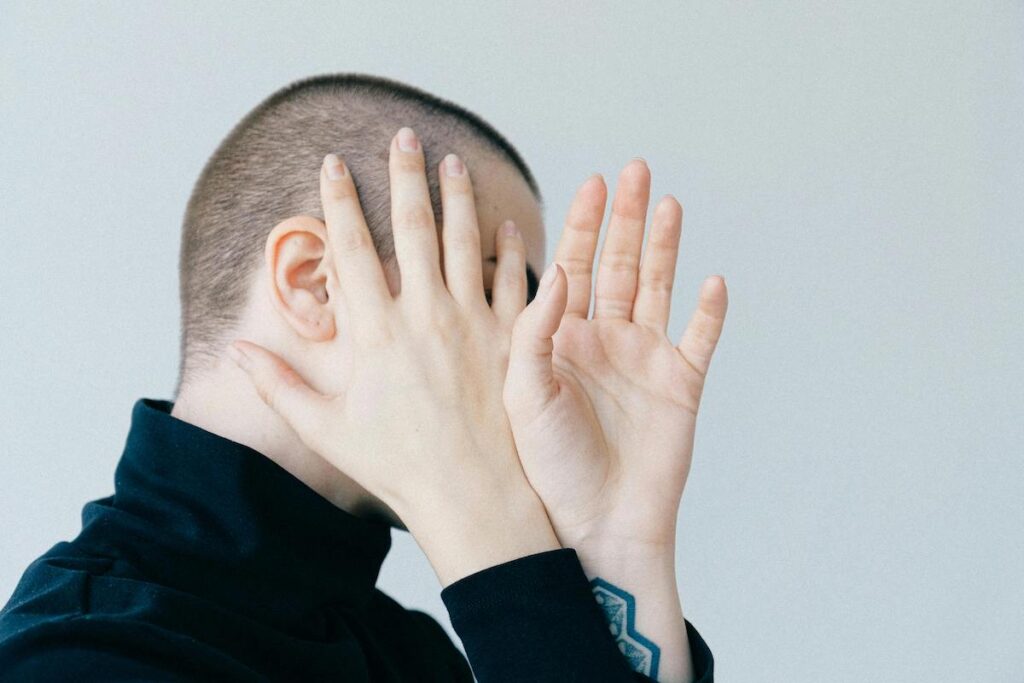Addiction Behind Closed Doors
Addiction doesn’t always look the way people expect it to. While media often portrays it as chaotic or visibly destructive, many individuals quietly struggle with substance use disorders while maintaining jobs, relationships, and daily responsibilities. This is especially true for adults who have learned to mask their addiction under layers of routine and high functioning behavior. Known as hidden addiction, this silent crisis is more common than many realize.
In Columbia, SC and across the country, adults face unique pressures that can lead to substance use. Stress from work, family obligations, unresolved trauma, and mental health challenges can all contribute. Because these individuals often appear to have their lives together, addiction can go unnoticed for years. Understanding the signs, risks, and treatment options for hidden addiction in adults is the first step toward healing.
Why Adults Hide Their Addiction
Adults facing addiction often carry an intense fear of judgment, embarrassment, or professional repercussions. Many feel that admitting they need help would be seen as a weakness or failure. This fear leads to secrecy, denial, and an ongoing attempt to manage addiction alone.
Responsibilities also play a significant role. Adults with children, demanding careers, or caregiving roles worry that stepping away for treatment will negatively impact those who depend on them. Rather than seek help, they try to balance substance use with daily life, convincing themselves that things aren’t “bad enough” yet. Stigma remains a powerful barrier. Even in supportive communities like Columbia, many adults internalize negative stereotypes about addiction. They may believe that as long as they’re keeping up appearances, they don’t need help. But addiction thrives in secrecy, and over time, the cost becomes harder to ignore.
Signs of Hidden Addiction
Recognizing addiction in adults isn’t always straightforward. The signs may be subtle or dismissed as stress-related changes. Still, there are patterns to watch for that may indicate a deeper problem:
- A noticeable increase in alcohol or prescription drug use
- Secrecy around daily routines or whereabouts
- Mood swings, irritability, or unexplained fatigue
- Changes in sleep patterns or appetite
- Excuses for missed obligations or declining performance
You may also notice shifts in personality. A once patient and engaged individual might become distant or defensive. Financial problems may arise without clear explanation. If these changes appear consistently, it could point to an ongoing struggle with substance use.
Common Substances in Adult Addiction
Hidden addiction can involve a wide range of substances. Alcohol is the most frequently used, often consumed socially or at home in increasing quantities. Because alcohol is legal and widely accepted, it can be easy to overlook signs of overuse.
Prescription medications also play a major role. Adults may begin taking opioids, benzodiazepines, or stimulants for legitimate medical reasons. Over time, misuse can develop—either from increased tolerance, emotional reliance, or a desire to escape mental distress.
Illicit drugs like cocaine, heroin, or methamphetamine are also involved in some adult addiction cases, especially when prescription drugs become inaccessible. No matter the substance, the underlying issue remains the same: a reliance on chemicals to cope with life.
The Mental and Physical Toll
Hidden addiction doesn’t just affect relationships and responsibilities—it also takes a serious toll on the body and mind. Prolonged substance use alters brain chemistry, leading to mood disorders, memory issues, and decreased cognitive functioning. Many adults in this situation also struggle with depression, anxiety, or unresolved trauma. The substances they use offer temporary relief but worsen symptoms in the long term. Physical health often declines, with impacts on the liver, heart, immune system, and overall energy levels. Left untreated, hidden addiction can spiral into crisis. Overdose, mental breakdowns, and the collapse of personal and professional life are very real risks. But recovery is always possible with the right support.
The Importance of Compassionate Intervention
When a loved one appears to be struggling, approaching them requires care and empathy. Confrontation or accusations often lead to defensiveness and withdrawal. Instead, focus on expressing concern and offering support without judgment. Timing matters. Choose a quiet moment when emotions aren’t running high. Use “I” statements, such as “I’ve noticed you seem more withdrawn lately and I’m worried about you.” Invite them into the conversation rather than forcing it.
If the individual is receptive, offer to help research treatment options or go with them to an assessment. The goal is not to shame but to open a door to healing.
Treatment Options in Columbia, SC
The Wave of Columbia offers personalized treatment for adults struggling with hidden addiction. Our programs begin with a thorough evaluation to understand the individual’s unique challenges, substance history, and co-occurring mental health conditions.
Depending on the severity of the addiction, treatment may start with medical detox. From there, clients may transition into residential care, a partial hospitalization program (PHP), or an intensive outpatient program (IOP).
Our evidence-based therapies include:
- Cognitive Behavioral Therapy (CBT) to address thought patterns
- Dialectical Behavior Therapy (DBT) for emotional regulation
- Trauma-informed care for those with past abuse or PTSD
- Family therapy to rebuild trust and communication
Each treatment plan is customized to fit the individual’s needs, lifestyle, and recovery goals. We also offer flexible scheduling options to accommodate adults who need to maintain family or work responsibilities.
Life After Hidden Addiction
Recovery is not just about stopping substance use—it’s about rebuilding a meaningful life. Many adults who complete treatment discover new passions, restore damaged relationships, and develop healthier coping strategies.
At The Wave of Columbia, aftercare planning is an essential part of every treatment journey. We work with clients to create a roadmap that includes ongoing therapy, peer support groups, relapse prevention skills, and lifestyle adjustments.
Reclaiming your life from addiction is a courageous act. It’s never too late to change direction, no matter how long the struggle has been hidden.
When to Seek Help
If you suspect that you or someone close to you is dealing with hidden addiction, don’t wait for a crisis. Early action can prevent deeper damage and pave the way for recovery. Trust your instincts and reach out for professional guidance.
The Wave of Columbia is here to support you every step of the way. Whether you’re seeking help for yourself or someone else, we provide confidential, compassionate care designed to meet you where you are.
Hidden addiction in adults, You’re Not Alone
Hidden addiction can make individuals feel isolated, ashamed, and hopeless. But the truth is, help is available and recovery is within reach. By recognizing the signs, understanding the risks, and exploring treatment options, you or your loved one can take the first steps toward healing.
If you’re ready to break free from the grip of hidden addiction, contact The Wave of Columbia today. A new beginning starts with one brave decision.



